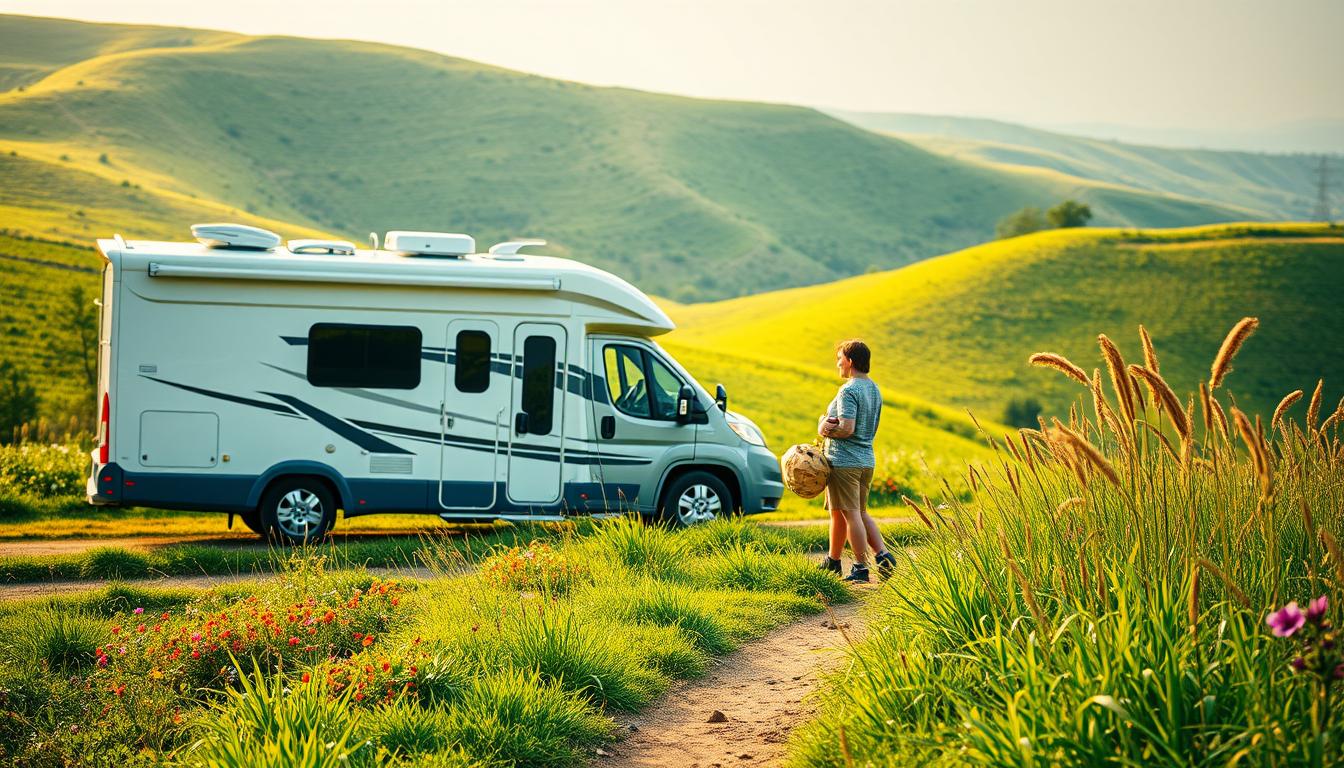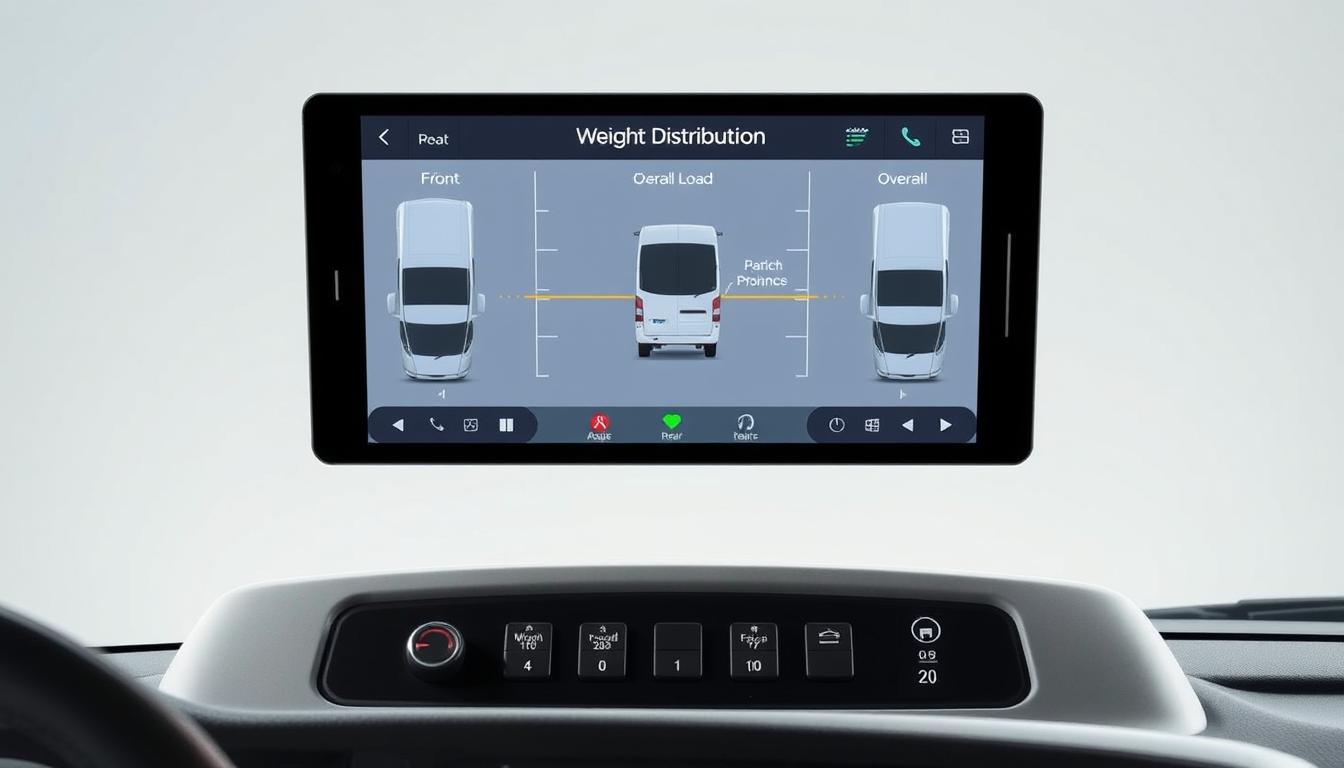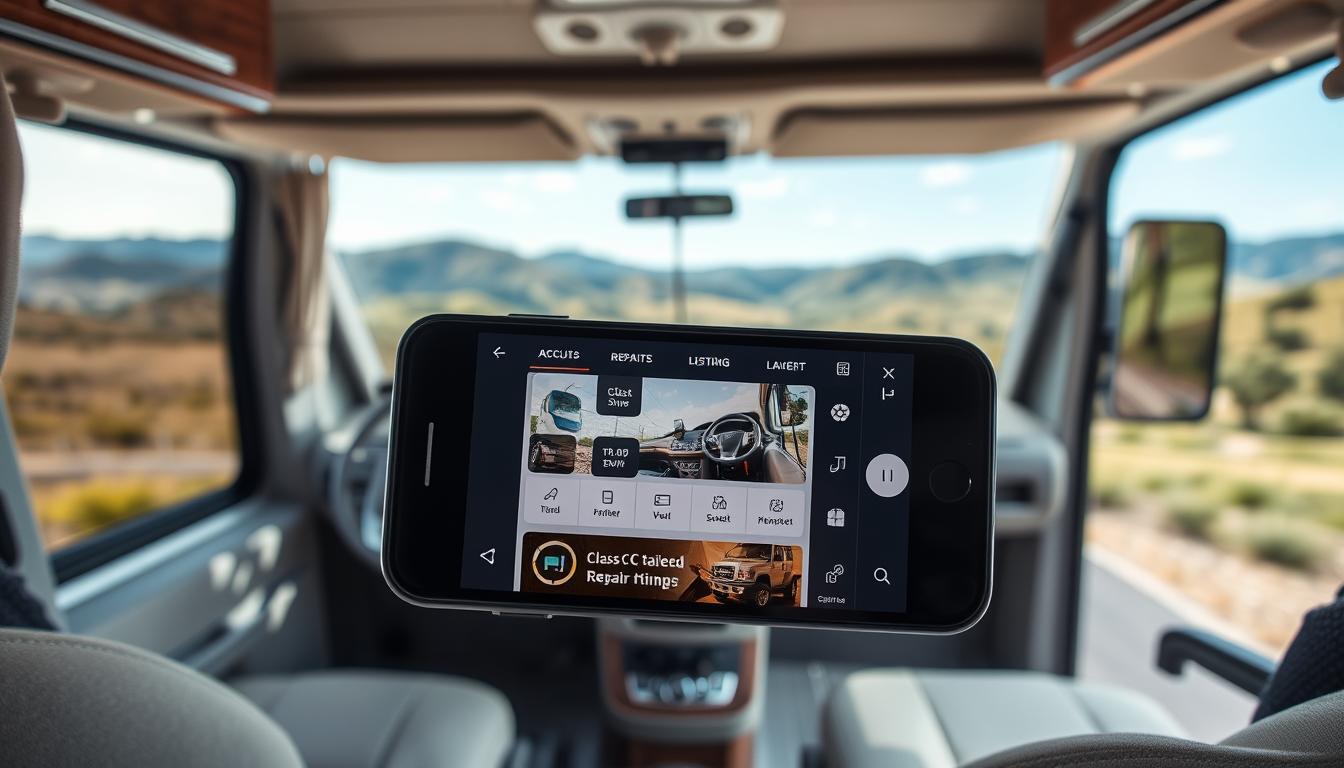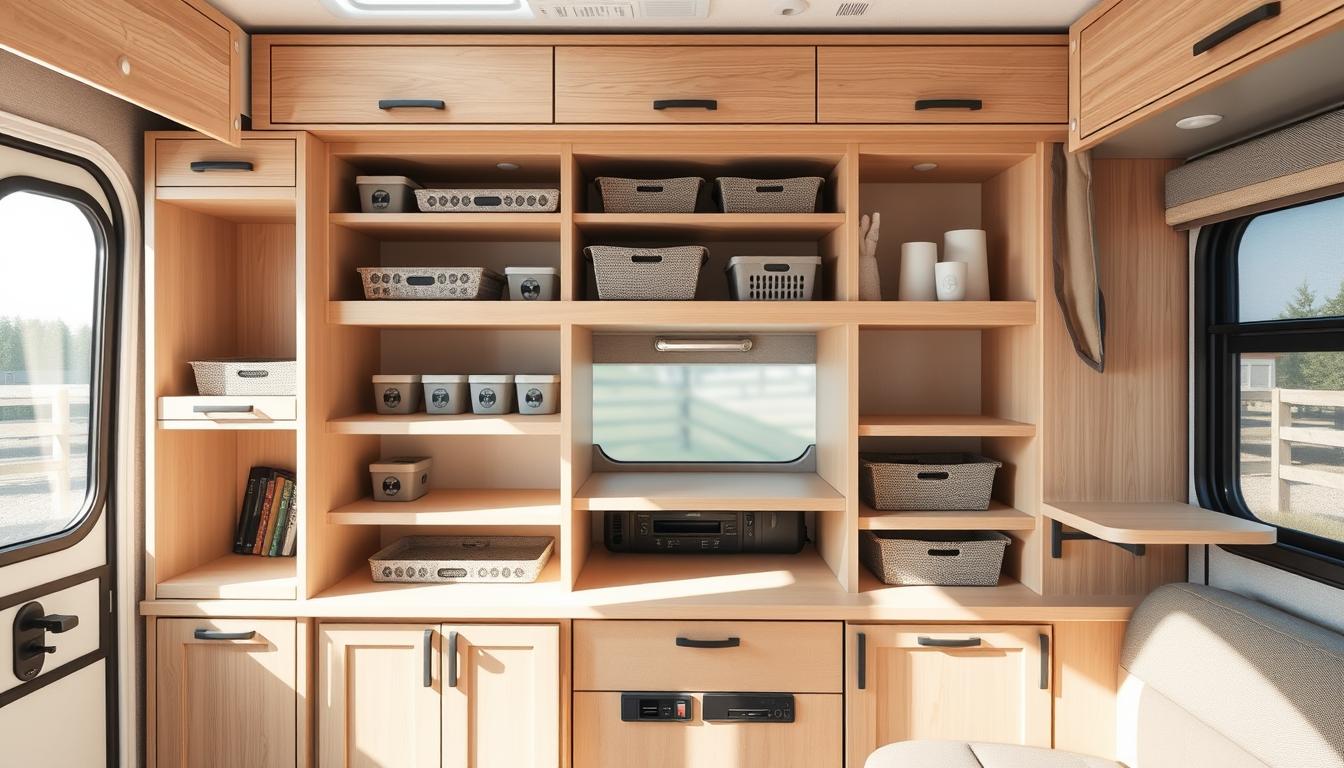Step-by-step guide to sustainable and eco-friendly Class C motorhome travel
Ever thought about how your Class C motorhome trips could be better for the planet? It’s easier than you think to make your travels more eco-friendly. This guide will show you how to enjoy the road while being kind to the environment.
We’ll cover everything from picking the right motorhome to using renewable energy. It’s all about making your travels sustainable and fun. Let’s get started on this green adventure together.
Understanding Class C Motorhomes
Class C motorhomes are a special type of RV. They are known for being mid-sized and easy to use. Their design, with the cab over the living area, adds style and extra room for sleeping.
These motorhomes come with all the basics like a bed, kitchen, and bathroom. They offer a good mix of comfort and convenience. They are perfect for those who want to travel in an RV but don’t need something huge.
Traveling in a Class C motorhome means you get to enjoy the road and feel at home. Knowing what these RVs can do is key to a great trip. It helps make your travel more eco-friendly.
Benefits of Eco-Friendly RV Travel
Eco-friendly RV travel has many benefits, making it a great choice for today’s travelers. It greatly reduces carbon footprint. By choosing RV travel over flying, people can cut down on emissions and support sustainable tourism.
RV travel is also very flexible. Travelers can easily plan their trips, visiting places that big tours often miss. Cooking meals in the RV makes trips more comfortable and healthy.
Choosing to stay in less touristy areas helps connect with local communities. This supports local economies and promotes sustainable tourism. It’s a way to enjoy travel while being responsible and ethical.
Choosing the Right Class C Motorhome
When picking an RV, especially a Class C motorhome, knowing key factors is key. Size and fuel efficiency are top priorities. They ensure the RV meets your travel needs and cuts down on environmental harm. Look for models with green RV features like efficient heating and cooling or lightweight materials for better fuel use.
Also, consider solar panels. Many Class C motorhomes now come with solar systems. This gives you a green energy source on the go. Think about what you need in terms of space and amenities. Different RVs offer different layouts and features. By looking at these, you can find an RV that fits your eco-friendly travel goals and makes your trips better.
| Feature | Importance | Options |
|---|---|---|
| Size | Fits your needs for travel and comfort | Compact vs. Spacious |
| Fuel Efficiency | Reduces fuel costs and environmental impact | Gas vs. Diesel |
| Eco-Friendly Features | Supports sustainable travel | Solar panels, energy-efficient appliances |
| Heating & Cooling | Improves comfort while minimizing energy use | High-efficiency systems |
Guides for eco-friendly travel with Class C motorhome
Planning eco-friendly travel with a Class C motorhome requires careful thought. Look for features and certifications that help the environment. Knowing about eco-friendly RV features can make your trip greener and healthier.
Researching Eco-Friendly Features
When searching for sustainable motorhomes, seek out models with green features. Look for energy-saving appliances, good insulation, and LED lights. These features cut down on energy use and make your trip more comfortable.
Also, check for water-saving fixtures to use less water on the road. Some makers use recycled materials for the interior. This adds to the eco-friendliness of the RV.
TRA Certification and Its Importance
TRA certification is key for eco-friendly RVs. It checks if RVs meet standards for energy use, air quality, materials, and water use. Choosing a TRA certified Class C motorhome means you’re choosing a green option.
This certification shows the RV meets high environmental standards. It gives you confidence as you start your journey. Knowing about TRA certification helps you choose a sustainable travel option.
Planning Your Sustainable Road Trip
Planning a sustainable road trip makes your journey better for the planet and more efficient. It’s key to choose routes that use less fuel and save money. By planning your trip well and picking the right places to refuel, you can make the most of your adventure.
Mapping Efficient Routes
Choosing the right roads can make a big difference in your trip’s fuel use. Use apps that give you traffic updates and suggest better routes. These apps can save you time and help you find ways to get better gas mileage.
Scheduling Fuel Stops Wisely
Planning your fuel stops can make your trip more fun. Decide when to refuel based on how far your motorhome can go. Pick fuel stations that are on your way and have good prices. This way, you spend less time at fuel stops and more time enjoying the views or relaxing at campsites.
| Route Planning Factor | Benefits |
|---|---|
| Traffic Considerations | Reduced idle time and fuel consumption |
| Scenic vs. Direct Routes | Enhanced travel experience while maintaining efficiency |
| Fuel Station Selection | Potential savings on fuel costs |
| Rest Stop Timing | Increased driver alertness and reduced fatigue |
Prioritizing Vehicle Maintenance
Keeping a Class C motorhome in good shape is crucial for both fuel efficiency and reliability. Regular maintenance is essential for safety and to save on travel costs. It helps catch problems early, making your vehicle last longer and run better.
Regular Check-Ups for Fuel Efficiency
Regular checks are key to better fuel use. You should keep an eye on:
- Engine oil levels
- Air and fuel filters
- Fluid systems like coolant and brake fluids
- Battery health
These checks help keep your motorhome running smoothly. They save you money in the long run. Sticking to a maintenance plan means your motorhome will run better and longer.
Proper Tire Maintenance Techniques
Tire care is important for safety and better fuel use. Here’s how to do it:
- Check tire pressure often
- Rotate tires when needed
- Make sure tires are aligned right
- Check tread depth for even wear
Good tires make your RV more fuel-efficient. They reduce drag and improve handling. This means your motorhome will perform better overall.
Lightening Your Load for Fuel Efficiency
Traveling in a Class C motorhome is exciting. But, it’s key to reduce RV weight. Packing smart can make your trip better and cut down on emissions.
Assessing What to Pack
When packing for RV travel, start with a list. Identify what’s truly essential. Remove items you don’t need to avoid extra weight. This helps make your trip smoother and cheaper.
Upgrading to Lightweight Furniture and Fixtures
Lightweight RV upgrades can make your motorhome look great without adding weight. Choose furniture made from aluminum or composites. These options are lighter and stylish. Swapping heavy items for lighter ones keeps fuel costs down and makes your space look good.
Incorporating Renewable Energy
Adding renewable energy to your RV makes it more sustainable. It also fits with eco-friendly living. Solar power is a top choice because it’s clean and cuts down on fossil fuel use.
Benefits of Solar Power
Solar power saves money and is better for the planet. It lets RV owners run lights and appliances without noisy generators. Solar panels are light, quiet, and green, perfect for off-grid adventures.
Installation of Solar Panels
Putting in solar panels is a smart move for a greener RV. Today’s systems are easy to set up, even for beginners. A custom solar setup means endless power without the hassle of old generators. It’s a big step toward a cleaner world.
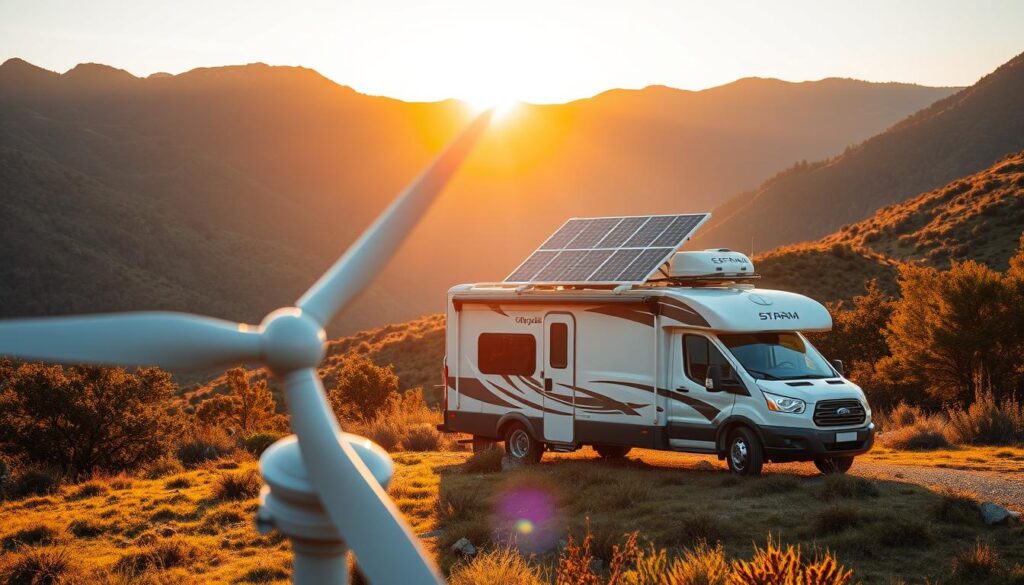
Practicing Eco-Friendly Camping Habits
Practicing eco-friendly camping helps keep nature safe for the future. By following Leave No Trace principles, we can reduce our impact. Using biodegradable products also ensures we leave no harmful trace. These habits make camping better and help protect the environment.
Leave No Trace Principles
Leave No Trace principles teach us to enjoy nature responsibly. They suggest camping on durable surfaces and disposing of waste correctly. They also remind us to respect wildlife. By following these, we can have fun outdoors without harming nature.
Using Biodegradable Products
Choosing biodegradable products for camping is a smart move. Using biodegradable soap and utensils cuts down on chemical pollution. Every choice we make helps keep our campsites clean and beautiful for everyone.
Shopping Locally and Supporting Communities
Shopping locally when you travel has a big impact. It lets you find unique items that show off the local culture. By choosing to shop locally, you help the community and make it a better place.
Small businesses are the heart of any area. They offer more than just products; they give experiences that make your trip special.
When you choose local markets and restaurants, you help the environment. These places use local ingredients and make things by hand. This choice makes your trip better and helps the planet.
Buying from local artisans and farmers helps the economy grow. It creates jobs and improves people’s lives. When you shop locally, you keep money in the area, making it stronger.
When you bring back unique items, you share your experience with others. This encourages more people to support local businesses and economies.
Utilizing Sustainable Campgrounds
Choosing the right campground is key to eco-friendly camping. By picking eco-friendly campgrounds, your trip supports green choices. These places focus on recycling, using renewable energy, and saving water.
When planning your RV trip, look for sustainable campgrounds. They often have solar power, composting, and teach about conservation. Choosing these places helps keep nature beautiful and supports eco-friendly tourism.
Connecting with the RV Community
Joining the RV community opens doors to shared adventures and learning. It’s a place where people come together, united by a love for the environment. RV clubs are especially great for making eco-friendly travel connections.
In these clubs, members swap tips on how to travel green. They talk about the best campsites and share new ideas for eco-friendly travel. This helps everyone learn and grow, making a bigger impact on the planet.
Being part of RV clubs makes people more aware of their impact. They share their experiences and inspire others to live more sustainably. This community spirit helps everyone grow and work together towards a greener future.
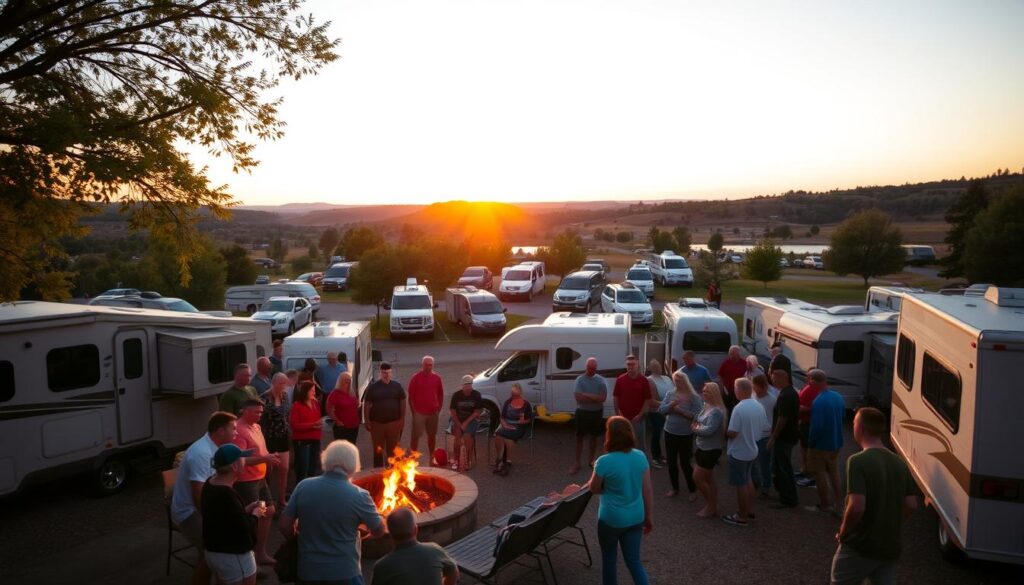
Following Eco-Friendly Driving Practices
Using eco-driving tips can make your Class C motorhome more fuel-efficient. By driving sustainably, you can also help the environment. Here are two key practices to follow.
Reducing Speed for Better Mileage
Driving slower can save a lot of fuel. Most cars use less fuel between 45 and 55 mph. Going faster than this increases air resistance and uses more fuel.
Using cruise control helps keep your speed steady. This is especially helpful on long drives.
Avoiding High Wind Conditions
Wind can also affect how much fuel you use. Strong winds make your car work harder, using more fuel. Try to avoid routes with strong winds.
If you know winds will be strong, slow down. This can help save fuel and make your drive more efficient.
| Driving Practice | Impact on Fuel Efficiency | Recommended Action |
|---|---|---|
| Reducing Speed | Increases mileage | Stay within 45-55 mph |
| Avoiding High Winds | Reduces drag | Plan routes to minimize wind exposure |
Understanding the Impact of Waste Management
Effective waste management for RVs is key to reducing environmental harm on the road. Using eco-friendly disposal methods is crucial for responsible travel. This ensures waste is sorted and disposed of correctly in designated areas. RV travelers need to follow local waste management guidelines to support sustainability.
They should use recycling tips that fit their travel destinations. This helps in reducing waste and promoting recycling.
Proper Disposal and Recycling
Knowing local waste disposal rules is important. Many campsites and RV parks have special areas for waste and recycling. These include bins for plastics, glass, and aluminum.
Following these rules helps cut down on landfill waste and boosts recycling. It’s also smart to carry reusable waste bags for easier disposal. Knowing what can be recycled is vital. For instance, plastics with #1 and #2 recycling symbols are usually okay, but others might not be.
Using Composting Toilets
Composting toilets are a green choice for RV travel. They turn human waste into compost, using less water and managing waste better. Using these toilets helps reduce environmental harm and can even improve soil at campsites or gardens.
It’s important to know how to maintain these toilets. Regular checks and adding carbon-rich materials keep the compost balanced.
Explore Nature Responsibly
Exploring nature responsibly means thinking carefully about how we interact with the environment. We should follow guidelines to protect sensitive ecosystems. It’s key to stay on marked trails to avoid harming plants and animals.
Reducing noise helps everyone enjoy a quiet experience. We should speak softly and listen to nature’s sounds. This way, we respect the natural world.
When camping or hiking, we must take all trash with us. Using the right disposal sites is important. This keeps nature beautiful for now and for the future. It’s how we all enjoy the outdoors responsibly.
| Responsible Nature Exploration Practices | Benefits |
|---|---|
| Staying on designated paths | Protects ecosystems from erosion and damage |
| Minimizing noise pollution | Maintains a peaceful environment for wildlife |
| Carrying out all waste | Prevents pollution and maintains natural beauty |
| Using biodegradable products | Contributes to less environmental impact |
| Respecting wildlife habitats | Promotes biodiversity and ecosystem health |
Conclusion
Traveling in Class C motorhomes is a great way to see the outdoors while being kind to the planet. With the right tips, RV trips can be both fun and good for the environment. By planning well, keeping your vehicle in good shape, and camping responsibly, you can enjoy your travels while helping the planet.
Remember to include eco-friendly habits in your travel plans. Using renewable energy, buying local, and managing waste are all important. These actions help make your trips better for the environment. This way, we can all enjoy the beauty of nature for years to come.
Sustainable travel is more than just a choice; it’s a way to care for our planet. By choosing eco-friendly habits, RV lovers can help protect our resources. This journey towards greener RV travel is something we can all be a part of, making a difference as we go.
